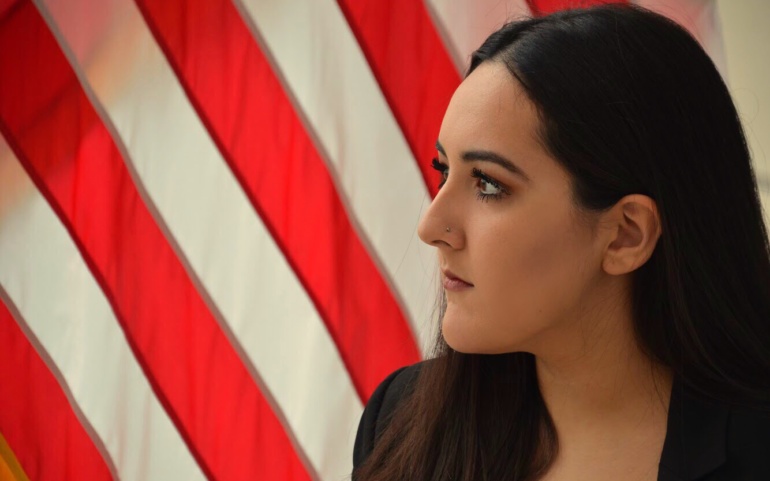What are you passionate about?
From volunteering on a political campaign for the first time in 8th grade to studying social change in college to jump starting my career in foreign policy, I have been a political junkie for as long as I can remember. What drew me to politics wasn’t the prestige, power, or drama that comes with it, however; it was the idea that when ordinary citizens get involved under a collective voice of justice and peace, almost anything is possible.
Over the years, I learned how to intersect my passions for domestic and international politics within our diaspora. I believe that through productive engagement in political and social processes, we can drastically change the state of the now four decade long Afghan conflict and elevate the agency of the diaspora in American politics.
I’m also passionate about J. Cole, mantu, travel and shower karaoke.
What can the Afghan-American community improve on?
The Afghan-American community needs to be more engaged in social and political processes, both in the U.S. and Afghanistan. Compared to other diaspora communities, our engagement levels in politics are very low. I believe this lack of engagement has contributed to the protracted conflict in Afghanistan and has prevented us from developing sustainable solutions to challenges facing our diaspora. While we have slowly become more engaged over the past decade and have contributed greatly to humanitarian efforts in Afghanistan, we must take it to the next level through increasing our political advocacy. This can include simple things like voting or supporting social media campaigns to more engaged efforts like lobbying, running for office or creating grassroots campaigns advocating for issues important to our community. We often underestimate the power of our collective voice as one of the most uniquely situated diasporas in the world.
What do you think you the Afghan-American community needs to work on next?
In effort to tackle issues facing our community or becoming a more engaged diaspora, we must first develop a cohesive identity and call to action. This can only be done through openly discussing and addressing the deeply rooted fissures within our community – including ethnic, gender, linguistic, and other divides. Organizations like The Samovar Network and the Afghan-American Conference (AAC) have created platforms for us to begin having these conversations, but it is essential for us to push these discussions to the next level by openly challenging each other in all aspects of our community’s socialization. We must not be afraid of the tensions that arise from such conversations because they are essential to our development as a diaspora.
How did you get involved in the peace and security field?
In college, I started a club called Patriots for Peace, which encouraged students to get involved in global peace-building through local efforts. I also majored in and am currently pursuing a Masters degree in Conflict Analysis and Resolution. My activism on campus along with my academic background opened the door for me to work with the U.S. Institute of Peace (USIP), a non-partisan organization dedicated to preventing, mitigating and resolving violent conflict around the world.
Specifically, what is your thesis on?
My Master’s thesis, titled Afghanistan Fatigue: Political Mobilization of the Afghan Diaspora, looks into the contending transnational cultural practices and narratives that have hindered the Afghan diaspora engagement in politics and peacebuilding. Compared to other diaspora communities in the United States, it has taken us a longer time to become politically engaged; highlighting not only the unique challenges facing our diaspora, but also the ramifications of our inability to mobilize on the conflict in Afghanistan and the development of our community in the U.S.


Add Comment